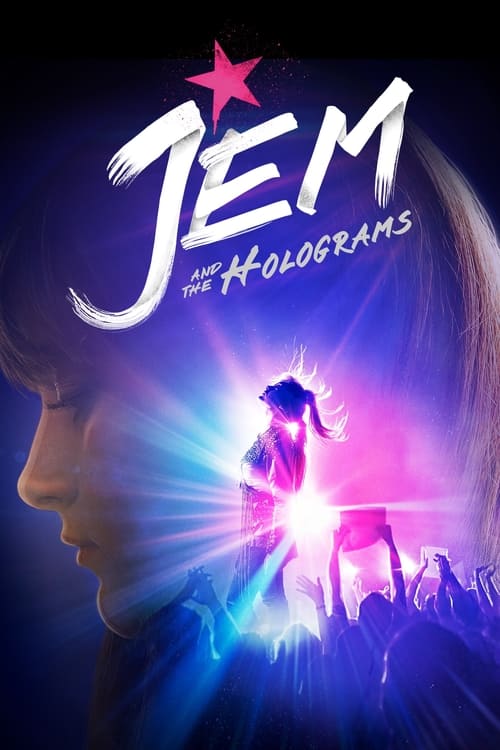Jem and the Holograms – Film Review
Published April 7, 2024

When Jem and the Holograms hit the big screens in 2015, there was a buzz of anticipation, mixed with a healthy dose of skepticism. This cinematic reboot of the 1980s animated television series sought to tap into the nostalgia vein while reimagining the story for a new generation. The task was Herculean, given the original series’ cult status, adored for its outlandish science fiction elements, memorable music, and unique characters. Unfortunately, the film, directed by Jon M. Chu, missed the mark by a wide margin, delivering a narrative that felt both disjointed and superficial.
At its core, Jem and the Holograms is a rags-to-riches tale, focusing on Jerrica Benton (played by Aubrey Peeples), a young woman with incredible musical talent who transforms into the sensational Jem with the help of a hologram-generating computer named Synergy. The movie attempts to modernize the story by weaving in elements of social media virality and corporate machinations in the music industry, concepts that are undoubtedly relevant today. However, the execution falls flat, turning what could have been a vibrant, energetic revival into a plodding narrative that struggles to find its rhythm.
One of the central issues is the film’s struggle to balance its musical aspirations with its dramatic undertones. The journey of Jerrica and her bandmates (her sisters in both music and life) from anonymity to stardom is accelerated and lacks depth, making it hard for the audience to invest in their success. The conflicts they face, primarily through the machinations of Erica Raymond (Juliette Lewis), the CEO of Starlight Music, feel contrived and lack genuine stakes.
The characters of Jem and the Holograms suffer from a similar lack of development. Jerrica/Jem, who should be the narrative’s emotional core, often comes across as wooden and uninspiring. This is no fault of Peeples, who does her best with the material given, but rather the script, which provides little for her to work with beyond the basic contours of a shy girl turned pop sensation.
The supporting characters fare no better. The other members of the Holograms—Kimber, Aja, and Shana—are relegated to the background, defined more by their aesthetic contributions to the band than any substantial character development. This is particularly disappointing given the rich backstories and personalities present in the original series. Rio Pacheco (Ryan Guzman), Jerrica’s love interest and the band’s manager, is similarly underdeveloped, serving more as a plot device than a fleshed-out character.
Given the source material’s emphasis on vibrant visuals and memorable music, one might expect these elements to be the film’s saving grace. Unfortunately, they too fall short of expectations. While there are moments of visual flair—primarily in the band’s performances—the overall aesthetic feels surprisingly muted, lacking the colorful, over-the-top energy that defined the animated series.
The music, which should be the heart and soul of a film about a pop band’s rise to stardom, is forgettable. The songs lack the catchy hooks and emotional depth that could have made them stand out. Instead, they blend into the background, failing to propel the narrative forward or deepen our understanding of the characters.
The attempt to modernize Jem and the Holograms for a 21st-century audience is perhaps the most divisive aspect of the film. On the one hand, the incorporation of social media and commentary on the ephemeral nature of fame in the digital age are timely and potentially interesting themes to explore. On the other hand, these elements often feel shoehorned in, serving more as buzzwords than meaningful contributions to the story.
Moreover, the decision to downplay the more fantastical elements of the source material, particularly the science fiction aspects associated with Synergy, robs the story of much of its original charm and uniqueness. Instead of a thrilling adventure that balances music, mystery, and technology, we are left with a formulaic story that struggles to stand out from the crowd.
Jem and the Holograms ultimately feels like a missed opportunity. In its effort to be grounded and relevant, it sacrifices much of what made the original series special. The film lacks the necessary energy, character development, and memorable music to make it a successful revival.
